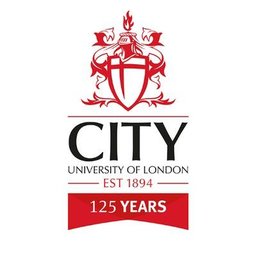The Signal Processing Engineer will be placed within the Research Centre for Biomedical Engineering at the Department of Engineering, School of Science and Technology.
The Research Centre for Biomedical Engineering (RCBE) offers world-class research in state-of-the-art laboratories where engineers, scientists and healthcare experts work together to develop new medical technologies to solve some of the most urgent and challenging problems in healthcare.
The Centre holds Crainio, a spin off company from City University of London. Crainio sets out to revolutionise how to measure ICP by developing a non-invasive, inexpensive measurement instrument that uses a simple probe attached to the patient’s forehead.
Crainio’s nICP technology has been studied and developed since 2016. In-vitro studies, tests in healthy volunteers and data collection from patients in critical care have been part of the journey to place this technology on the market. Different grants have been awarded to the project, including the prestigious Biomedical Catalyst from Innovate UK. The later is founding a clinical feasibility study at the Royal London Hospital.
Background
The post holder should hold relevant PhD in Signal Processing, Software Engineering, Electronics Engineering, Biomedical Engineering or a related field.
In this role, the selected candidate will be responsible for designing, developing, and optimising algorithms for processing and analysing signals in real-time applications. Responsibilities include working with digital signal processing, advanced filtering techniques, dynamic feature extraction, time-domain and frequency-domain analysis, signal fusion and machine learning to enhance Crainio system performance. The ideal candidate has expertise in Python and biomedical signal processing, more specifically optical signals like Near-infrared Spectroscopy and Photoplethysmography. Strong problem-solving skills and the ability to collaborate with cross-functional teams are essential.
Responsibilities
The main responsibilities of the role are as follows:
- Develop and optimize algorithms for processing NIRS and PPG signals to extract vital physiological information such as heart rate, pulse rate variability, respiration rate, changes in vessel compliance, blood flow, and cerebral oxygenation levels, among others.
- Implement signal-quality analysis to ensure the reliability of PPG measurements in various monitoring scenarios.
- Collaborate with cross-functional teams to integrate signal processing solutions into Crainio hardware for better signal quality.
- Analyse and interpret PPG data to assess changes in intracranial pressure and cerebral autoregulation.
- Stay updated with the latest advancements in PPG research and signal processing techniques.
- Documentation and Reporting:
- Maintain comprehensive records of design, development, and testing activities.
- Prepare regular progress reports and document all findings for review and analysis.
- Team Collaboration:
- Collaborate closely with multidisciplinary teams, including biomedical engineers, data scientists, and clinicians, to ensure the successful integration and deployment of the algorithms.
Person Specification
Applicants will require:
Qualifications and Knowledge
- Postgraduate Degree in Software Engineering, Biomedical Engineering or a related field
- A good understanding of biomedical signal processing
- Proficiency in Python coding
- Knowledge of statistics and physiological signal analysis
- Good understanding of photoplethysmography and Near-infrared spectroscopy
Experience
- Proven experience in algorithm development to do physiological signal processing
- Experience in advanced computational techniques to assess and enhance signal quality
- Experience in machine learning techniques
Skills and Abilities
- Proficiency in Phyton coding
- Demonstrate the ability to meet deadlines and work under tight time scales.
- Show excellent verbal and written English communication skills including presentation and report-writing.
- Ability to work independently while contributing positively to a team's efforts when working collectively.
Additional Information
Please note: This role is only open to redeployees at City St George's. Applications from individuals who are not redeployees will not be considered at this time.
To apply, please email your CV and cover letter to [email protected], demonstrating how you meet the essential criteria outlined in the person specification.
Closing date: 22nd June 2025 at 11:59pm.
The post holder must at all times carry out their responsibilities with due regard to City St George's, University of London’s Equal Opportunities Statement.
The post holder must accept responsibility for ensuring that the policies and procedures relating to Health and Safety in the workplace are adhered to at all times.
The post holder must respect the confidentiality of data stored electronically and by other means in line with General Data Protection Regulation 2018 (GDPR) - the Data Protection Act 2018.
City St George's offers a sector-leading salary, pension scheme and benefits including a comprehensive package of staff training and development.
To apply and for more information about the post please use the links below.
City St George's, University of London is committed to promoting equality, diversity and inclusion in all its activities, processes, and culture for our whole community, including staff, students and visitors.
We welcome applications regardless of age, caring responsibilities, disability, gender identity, gender reassignment, marital status, nationality, pregnancy, race and ethnic origin, religion and belief, sex, sexual orientation and socio-economic background.
City St George's operates a guaranteed interview scheme for disabled applicants.
The University of business, practice and the professions.




